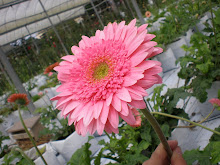What is Fenugreek?
Fenugreek, Trigonella foenum-graecum L., is an erect annual herb native to southern Europe and Asia. Undoubtedly one of the oldest cultivated medicinal plants, fenugreek is widely grown today in the Mediterranean countries, Argentina, France, India, North Africa, and the United States as a food, condiment, medicinal, dye, and forage plant (11.1-128). The plant reaches a height of 0.3 to 0.8 meters and has trifoliate leaves. White flowers appear in early summer and develop into long, slender, yellow-brown pods containing the brown seeds of fenugreek commerce. (1)
Fenugreek and Breastfeeding
Fenugreek seeds contain hormone precursors that increase milk supply. Scientists do not know for sure how this happens. Some believe it is possible because breasts are modified sweat glands, and fenugreek stimulates sweat production. It has been found that fenugreek can increase a nursing mother's milk supply within 24 to 72 hours after first taking the herb. Once an adequate level of milk production is reached, most women can discontinue the fenugreek and maintain the milk supply with adequate breast stimulation. Many women today take fenugreek in a pill form (ground seeds placed in capsules). The pills can be found at most vitamin and nutrition stores and at many supermarkets and natural foods stores. Fenugreek can also be taken in tea form, although tea is believed to be less potent than the pills and the tea comes with a bitter taste that can be hard to stomach. Fenugreek is not right for everyone. The herb has caused aggravated asthma symptoms in some women and has lowered blood glucose levels in some women with diabetes.Potential Side Effects
- Sweat and urine smells like maple syrup (this is common and often a sign that you have reached the right dose)
- Loose stools in some women, which go away when fenugreek is discontinued
- Hypoglycemia in some mothers
- Can cause uterine contractions - do NOT use if you're pregnant
- Diabetic mothers should use caution with fenugreek since it can cause lowering of blood glucose levels. (5)
Little Known Uses
Fenugreek has an age old reputation as a breast enlarger and contains diosgenin which is used to make synthetic estrogen and has been shown to promote the growth of breast cells. You can drink fenugreek as a tea, use it in yogurt, applesauce or soups, or make a light mixture with any lotion and massage it directly into the breasts. It may also aid in increasing sexual desire in women as well as increasing breast beauty and health. Fenugreek contains choline which may aid the thinking process, and antioxidants that slow aging and help prevent disease. It is also helpful in calming PMS and symptoms of menopause. Fenugreek is also considered to be an aphrodiasiac and rejuvenator. (6)







0 comments on "About Fenugreek...."
Post a Comment